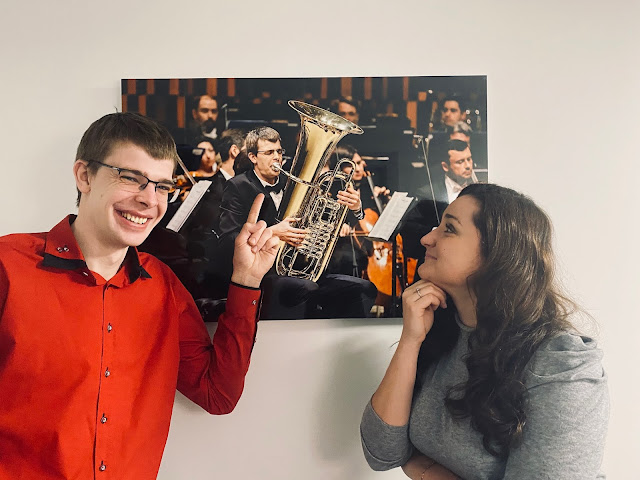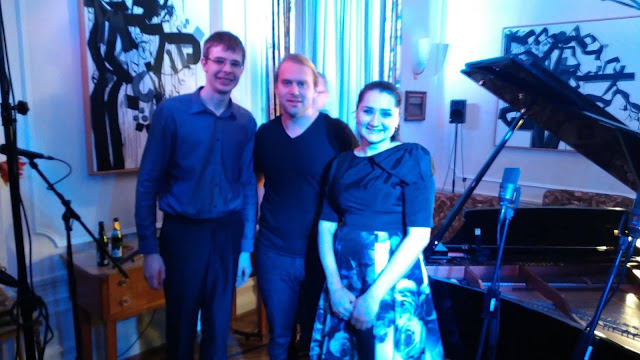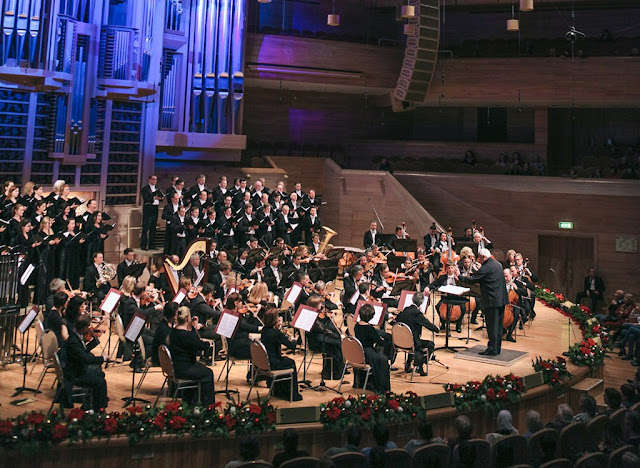Привет всем вам. Для меня большая честь и удовольствие иметь возможность взять интервью у молодого российского тубиста, уже зарекомендовавшего себя как один из самых востребованных в своей стране, и познакомить с ним весь мир.
Я искренне благодарю вас за вашу дружбу, ваше время и сотрудничество с этим проектом по проведению интервью.
Без лишних слов, давайте начнем.
• Имя и фамилия: Фёдор Шагов
• Какой маркой и моделью вы пользуетесь? B&S 3100 WG JBL Classics, Bb Meinl-Weston Fafner MW195/2-OGB.
• Какие мундштуки вы используете:
Для эфной тубы я использую мундштук PT-85 и Jerome Wiss «Roland Szentpali». На бейной тубе я играю на 1AA.
Давайте поговорим о вашем образовании:
• Когда и где вы начали изучать тубу или эуфониум?
Я начал играть на теноре в детской музыкальной школе имени В.Блажевича в Москве.
• В каком возрасте?
В 8 лет
• Какие причины или обстоятельства побудили вас изучить этот инструмент?
В школу с концертом приехал духовой оркестр.
Меня впечатлило звучание оркестра, музыканты разрешили потрогать инструменты, это привело меня в восторг. Больше всего мне понравился тромбон, захотелось научиться играть на каком-нибудь из этих инструментов. Я уговорил родителей отвести меня в музыкальную школу.
• Кто был вашим главным учителем?
Профессор Андреас Мартин Хофмаер, который не нуждается в представлении и профессор Александр Казаченков, солист оркестра Большого театра России.
 |
| Moscow Symphony Brass |
Что касается вашей ПРОФЕССИОНАЛЬНОЙ ЭКСПЕРИЕНЦИИ
Пожалуйста, дайте нам краткий отчет о Вашем опыте работы в качестве солиста, участника камерных ансамблей, оркестра, группы и т.д.
• В оркестре и/или оркестре:
Государственный духовой оркестр России (2014-2017 год)
Симфонический оркестр Москвы «Русская филармония» (2016-2017)
Государственная Академическая Симфоническая Капелла России под управлением Валерия Полянского с 2017 года по настоящее время.
Медные ансамбли:
Я играл во многих ансамблях как приглашенный артист.
На постоянной основе играю в ансамбле «Брасс-солисты России» под управлением Владислава Лаврика.
В джазовом ансамбле «Boom Brass Band»
В 2020 году я основал квинтет «Moscow Symphony Brass» и мы стали победителями самого престижного конкурса в России. Сейчас готовим программы для сольных концертов.
Я играю очень много сольных концертов в городах России, выступаю с симфоническими и духовыми оркестрами, а так же с моей супругой, пианисткой Кариной Шаговой. В начале января состоялся мой дебют с органом в Кафедральном Соборе г.Калининград, из-за пандемии пришлось играть два сольных концерта в один день. Это было интересно.
Так же несколько раз удалось поиграть концерты за рубежом, одними из ярких впечатлений остались концерты в филармонии города Баден-Баден с симфоническим оркестром.
 |
| Сольное выступление с оркестром в Большом зале Московской консерватории |
О вашем ОРХЕСТРА-ЭКСПЕРЬЕНЦИИ:
• Расскажите нам о своем опыте доступа к позиции оркестра, которую вы занимаете в настоящее время:
Меня пригласили сыграть конкурс в оркестр Капеллы. До этого несколько лет я проработал в духовом оркестре и один год в симфоническом.
• Как прошел процесс отбора?
Конкурс проходил в два дня, состоял из трёх этапов. Первый этап - исполнение программы с концертмейстером, на втором были оркестровые трудности. Третий этап – проба в оркестре.
• Какие работы и/или оркестровые соло были обязательными в тестах?
М.Мусоргский «Быдло» из «Картинок с выставки»
Г.Малер Симфония №1,3 часть
Р.Вагнер Увертюра к опере «Нюрнбергские Майстерзингеры» С.Прокофьев Симфония №5
Р.Вагнер «Полет Валькирий»
Д.Шостакович Симфония №5
• Были ли какие-нибудь работы по свободному выбору? Что это было?
Нет, не было.
В другом смысле:
• Как ваша текущая работа в оркестре?
На данный момент у нас идут постановки опер Дж.Верди «Фальстаф» и «Риголетто», С.Рахманинов Симфония №2, К.Орф «Кармина Бурана».
До пандемии были проделаны две большие работы: Р.Штраус «Альпийская симфония» и Д.Шостакович 4 симфония.
• Вы комбинируете его с другой музыкальной группой?
Помимо работы в оркестре я преподаю тубу и ансамбли медных духовых инструментов в Московском государственном колледже музыкального исполнительства им.Ф.Шопена и в Академии джаза, а так же играю в брасс-ансамблях и даю сольные концерты.
 |
| XVI Международный конкурс имени П.И. Чайковского, с моей супругой Кариной Шаговой |
• Какие рекомендации вы бы дали будущим тубистам, претендующим на место в оркестре?
Обязательно изучать оркестровые трудности, играть их под метроном, чётко соблюдать динамику и штрихи, написанные в нотном тексте, слушать хорошие записи и пробовать играть под них.
Изучаю другие источники информации.
Здесь, в Испании, в некоторых центрах Эуфониум считается инструментом, который должен иметь свою специализацию, а с другой стороны, некоторые считают, что, как инструменталист, нужно знать и владеть Тубой и Эуфониумом.
• Не могли бы Вы высказать свое мнение по этому вопросу и как бы Вы подошли к этому вопросу в интересах образования и подготовки, адаптированного к необходимой специализации, которая в настоящее время востребована во всем мире?
В России есть несколько исполнителей на эуфониуме, но нет преподавателей-эуфонистов, это не является самостоятельным предметом. Дети в музыкальной школе начинают играть на теноре или баритоне, по мере взросления переходят на тромбон или тубу. Я считаю, что специальность эуфониум необходима, так как этот инструмент пользуется всё большей популярностью в мире и она должна стать самостоятельным предметом. Но нет ничего плохого и в том, чтобы тубист владел разными инструментами, это расширяет кругозор. Я играю на эуфониуме, трубе и тромбоне.
• Как вы видите учение о тубе и эвфонии сегодня и в будущем?
Надеюсь, что эуфониум станет отдельной специальностью во многих странах. Для этого нужны профессиональные преподаватели, именно эуфонисты, а не тубисты или тромбонисты.
• Пожалуйста, расскажите нам что-нибудь еще, что, по вашему мнению, может быть интересно по этой теме.
Нужны пособия, школы, репертуар. А в последнее время актуальной проблемой являются живые уроки, лицом к лицу. Их очень не хватает.
Давай поговорим о твоей ТЕХНИЧЕСКОЙ ЭКСПЕРЬЕНЦИИ:
• Расскажите нам, в каких школах вы преподавали (приглашенный профессор, курсы, мастер-классы и т.д.).
Я много езжу по городам России с мастер-классами, а также веду курсы повышения квалификации для преподавателей. У меня есть приватные ученики из Китая, Америки и Европы.
Я являюсь преподавателем образовательного центра Юрия Башмета.
 |
| Мои ученики и студенты |
• Как вы организуете свои занятия и тему в целом?
Так как время мастер-класса ограничено, я сразу заостряю внимание на самых заметных проблемах и даю несколько способов их решения.
• Как долго продолжаются твои занятия?
Урок с моими студентами длится один час два раза в неделю, а так же ещё по часу на ансамбль и оркестровые трудности.
• Считаете ли Вы важным для студента делать публичные презентации во время учебы? Если да, то сколько раз вы считаете это уместным и в каком возрасте или классе - элементарном, профессиональном, более высоком?
Да, безусловно. Концерт – неотъемлемая часть нашей профессии. Очень важно научиться взаимодействовать с публикой, суметь «донести» максимум из возможного на данный момент. Я считаю, что нужно выступать на концертах в любом возрасте.
Важная часть учебной программы курса стандартизирована и основана на идее, что студент мастеров только репертуар, иногда в ущерб репертуару больших групп (оркестр и группа), когда на самом деле большинство Туба и Бомбардино студенты будут учителя и / или членов группы и, в меньшей степени, оркестр в случае Тубас.
• Как, на Ваш взгляд, следует решить эту проблему? Насколько важно, по Вашему мнению, включить в программу курса изучение и освоение оркестрового репертуара?
В период обучения студент должен учиться всему, независимо от того, что он выберет в дальнейшем. Придя работать в колледж, первым делом я попросил ввести в учебный план предмет «изучение родственного инструмента» и «оркестровых трудностей».
Это важно, так как при устройстве на работу без подготовки к прослушиванию человек оказывается в стрессовой ситуации.
 |
| Мой фестиваль "Аура Тубы" |
• Если бы вам пришлось выбирать в качестве студента (в гипотетической ситуации), было ли бы у вас предпочтение между студентом Тубы и студентом Эуфониума ?
Вероятно я бы предпочел тубиста, так как я в недостаточной степени владею репертуаром для эуфониума.
О твоей дневной работе.
• Над каким типом репертуара Вы в основном работаете?
Над классическим репертуаром.
• Какие разминочные упражнения вы используете?
Я использую разнообразные упражнения для разыгрывания, включающие в себя игру длинных нот, работу над техникой, штрихами, гаммы и этюды.
 |
| С моей супругой Кариной и моим профессором из России Александром Казаченковым. |
РАЗГОВОРЫ НА ТЕХНИЧЕСКИЕ ТЕМЫ:
• Не могли бы Вы высказать свое мнение о различных понятиях звука и о том, какие характеристики определяют его, артикуляция, типы инструментов, литература, если считается важным влияние языка и музыкальной традиции на звук и как на нем играть?
Звук - это наш голос и он должен «родиться» в нашей голове. Я достаточно долго искал свой звук и добивался его воплощения в реальности. На мой взгляд фантазия и воображение являются одними из самых основных моментов в становлении звука.
Что касается штрихов и артикуляции, то они зависят от музыки, которую мы играем, от стиля, эпохи, композитора. Стаккато Баха отличается от стаккато Шостаковича, а музыка эпохи барокко от романтизма.
• Расскажите нам немного о приготовлении тубы и/или эвфония и мундштуков, а также расскажите о своих впечатлениях и вкусах конкретного производителя и почему?
Если разговаривать об эфных тубах, то мне очень комфортно и удобно играть на инструментах фирмы B&S. У них очень красивый и нежный звук.
Что касается бейных инструментов, то здесь я отдал предпочтение Bb Meinl-Weston Fafner 195/2. Туба обладает очень глубоким, объёмным и насыщенным звуком, нет проблем с интонацией.
Вы признанный исполнитель в своей стране.
• Пожалуйста, расскажите нам об истории наших инструментов в Вашей стране.
В последние 20 лет в России всё чаще играют на тубах известных мировых производителей, особенно тубы строя F. У нас есть свой Санкт-Петербургский завод, где выпускают тубы Es и Bb. В профессиональных оркестрах всё же используются тубы Bb западных представителей.
 |
| Мой портрет в концертном зале "Зарядье" |
В ЗАКЛЮЧЕНИИ:
• Как Вы считаете, по Вашему опыту, разнообразие исполнителей, инструментов и возможность обучения в различных специализированных учебных заведениях становится однородным в уже созданных исполнительских центрах? (Пример: русский, американский, немецкий, английский и французский).
В каждой стране своя школа, культура, традиции. Большую пользу приносит международное общение и обмен опытом. Но всё же если все будут одинаковы, это перестанет быть интересным.
Федор, для меня большая честь и удовольствие рассчитывать на ваш опыт, сотрудничество в этой серии интервью и вашу искреннюю дружбу.
Большое спасибо и наилучшие пожелания.
Большое спасибо за это интересное время!
Большие объятия.

























